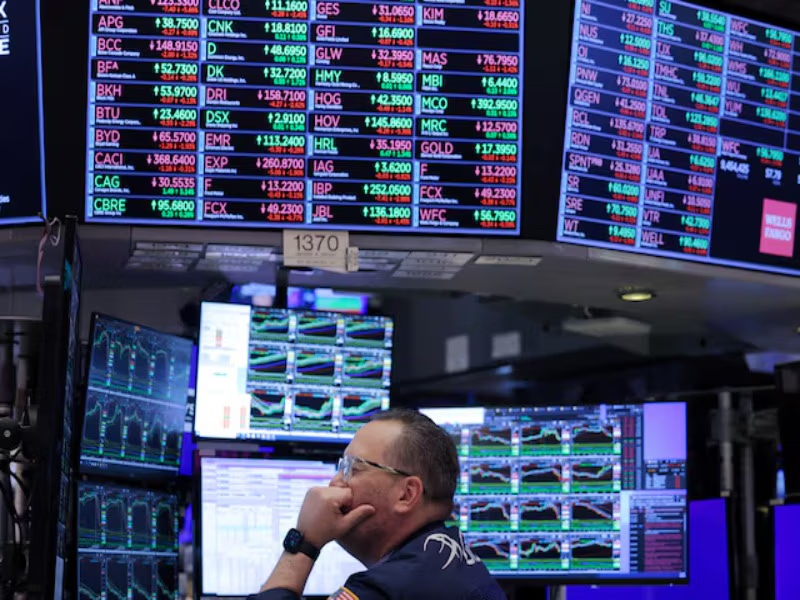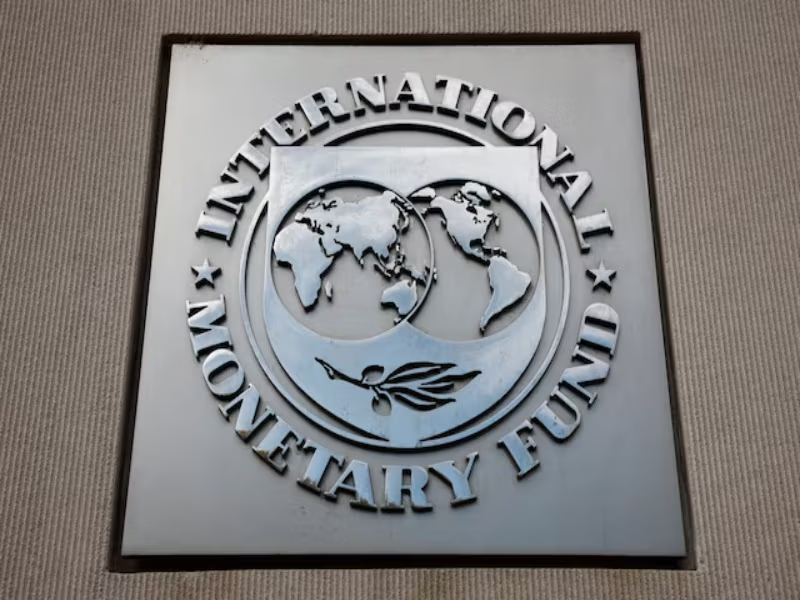The US stock markets that have shot up in the AI boom risk experiencing a “sudden, sharp correction,” yet the government bond markets face increasing pressure, the International Monetary Fund has cautioned.
The Fund, in its Global Financial Stability Report, released as the policymakers meet annually in Washington during the IMF meetings, stated that there is “complacent” in the markets.
It emphasized “increasing vulnerabilities in the financial system,” including in stock and bond markets, and among “non-bank financial intermediaries” (NBFIs) or “shadow banks”, which it cautioned are now tightly interconnected with the banking sector.
In recent months, US stock markets have surged to historic highs on a number of occasions. According to the IMF, stocks do not seem to be overvalued as it was during the dotcom bubble at the beginning of the millennium.
However, it also claimed that the profits are alarmingly concentrated among the so-called “magnificent seven” technological companies, as they include Apple, Nvidia, and Meta.
It reported “Concentration risk within the S&P 500 is at a historic high, with a narrow group of stocks spanning mega-cap IT and AI-related firms driving the broader index,” and the magnificent seven stocks contribute 33 percent to the index.
It has also cautioned “the possibility of mega-cap stocks failing to generate expected returns to justify current lofty equity valuations could trigger deterioration in investor sentiment and make the stocks susceptible to sudden, sharp correction,” adding, “valuations would collapse as a result, making the broader benchmark index vulnerable to downturns.”
The Fund also took an interest in the stability of the government bond markets, with most countries increasing their borrowing by far, and increasingly relying on so-called “price-sensitive investors,” as opposed to domestic pension funds, for instance.
Examining current trends in these markets, including changes in yields, which, on the contrary, move with a price, the IMF indicated that they are possibly “on shakier footing than they seem.”

The IMF indicated that the stress in the markets on the bonds of major governments is improbable to occur, a “tail risk,” but would have “broad and disruptive ramifications for financial markets, given bonds’ role as key benchmarks and collateral.”
The Fund also reiterated its warnings on the explosive increase of NBFIs in the global economy. These lenders, whose capital requirements are not as heavy as those of traditional banks, have grown exponentially over the last few years.
The IMF cited the fact that mainstream banks are lending more to NBFIs and increasing the risk of systemic crisis in case they started to fail.
By stating the better regulation of the sector, the IMF added, “Banks’ growing exposures to NBFIs mean that adverse developments at these institutions – such as downgrades or falling collateral values – could significantly affect banks’ capital ratios. The growing importance of NBFIs in financial intermediation highlights the need for sound oversight of this segment.”
It claimed that this weakness had further increased the urgency to proceed with the introduction of new bank capital measures to prevent a new crisis in the future the Basel III regime. It has not been done by the US and thus has been postponed by the Bank of England as well.
The IMF also did not fail to make a sideswipe at President Donald Trump by advising governments not to interfere in interest rate policy, stating “central bank operational independence remains critical for anchoring inflation expectations and enabling central banks to achieve their mandates.”
Trump has attempted to fire the Federal Reserve governor, Lisa Cook, and has constantly criticized the chair of the Fed, Jerome Powell, who has not reduced interest rates as quickly as would have been preferred by the White House.
In a different statement in terms of “G4” leading bond issuers like the US, UK, Japan, and the eurozone, but meanwhile aimed at Washington, the IMF said, “sustained trust in the institutional foundations in G4 economies has underpinned their sovereign bonds’ safe-asset status for decades and needs to be preserved.”






